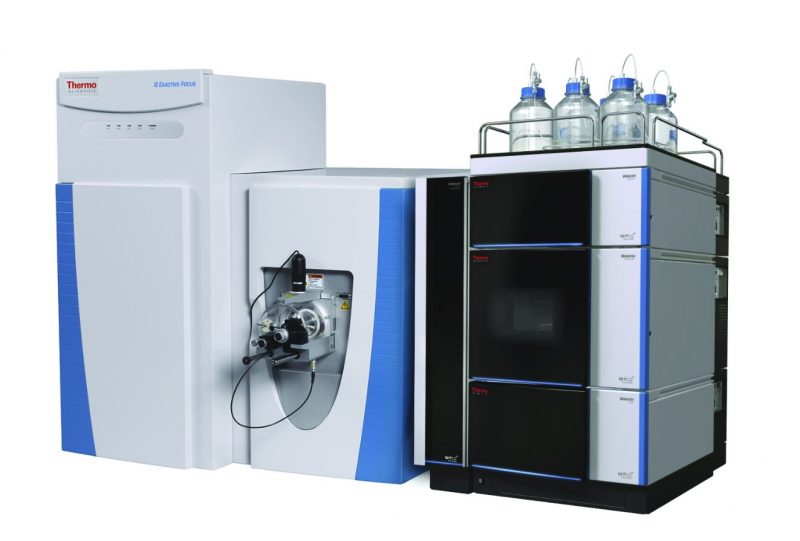Metabolite characterisation to accelerate drug discovery
The identification and characterisation of metabolites is a critical part of the drug discovery process. Sygnature has recently expanded its team of Biotransformation scientists, and added new state-of-the-art instrumentation that will enable us to do metabolite identification studies faster and more effectively.
Metabolite identification studies give an insight into what might happen to a drug molecule in the body. This enables us to design new drug candidates with greater metabolic stability, and to flag any potential toxic metabolites that might be formed. By working collaboratively with our clients, our aim is to advance candidates into the clinic that have a greater chance of success.
Our new Q Exactive Focus mass spectrometer from Thermo Fisher allows us to make critical decisions around structural characterisation of metabolites with increased confidence. We use both data-independent fragmentation and targeted MS-MS techniques to generate high-resolution accurate-mass fragment data. This not only helps us make structural assignments with a high degree of confidence, it improves efficiency and time-to-decision.

Different levels of detail are possible, depending on how extensive the studies are. A metabolic soft-spot analysis characterises the top-level metabolites, giving an insight into the key bio-transformations. Data on stability and metabolic hot-spots will inform design and direct compound selection in discovery projects. Typically, a more comprehensive analysis of both major and low-level metabolites will be required for a lead compound.
We use many established techniques to help answer questions around metabolic liabilities. For example, in vitro metabolite screening in hepatocytes and microsomes is a cost-effective way of evaluating compound metabolism in the hit-to-lead and lead optimisation stages of the drug discovery process. It helps to narrow down the number of clinically relevant compounds selected for more extensive and expensive in vivo pharmacokinetic profiling.
Cross-species metabolic profiling can be carried out in human and preclinical hepatocytes. Not only will this ensure the most relevant preclinical species are chosen, it will flag up any metabolites that might cause problems in humans once a drug candidate enters the clinic.
Further insights into how a lead compound might metabolised and be eliminated can be gleaned from in vivo metabolite profiling and identification. These tests can be carried out on plasma, urine blood or bile samples from pre-clinical species.
The highly experienced metabolite identification scientists here at Sygnature use chemically-intelligent software to enhance their manual data interrogation skills. This permits extremely thorough analysis to be made in a time-efficient manner, reducing non-value adding tasks whilst giving maximum metabolic coverage.
At Sygnature, we are always keen to ensure that our instrumentation remains state-of-the-art, and we embrace new techniques as they come along. We’re proud of our current capabilities, and extremely excited about our future plans for our metabolic ID offerings. Watch this space!
If you would like to discuss metabolite identification, our capabilities or even drug discovery in general then we’d love to hear from you. You can get in touch by using any of the contact forms.
